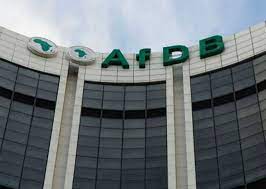Africa’s Untapped Potential: The Urgent Need for Effective Project Design and Execution
Africa stands at a critical juncture. A continent brimming with potential – vast arable land, crucial minerals for the green transition, and some of the world’s fastest-growing economies – is struggling to translate its resources and dynamism into widespread prosperity. The African Development Bank (AfDB) has issued a stark warning: without a significant improvement in the design and execution of infrastructure and development projects, Africa’s economic growth will remain constrained. This urgent call to action underscores the vital role of effective project management in unlocking Africa’s immense potential and transforming the lives of millions.
The AfDB, a key player in driving development on the continent, hosted the PMI Global Summit Series Africa in Kigali, Rwanda. This landmark gathering, the continent’s largest assembly of project management professionals, brought together almost 1,000 delegates, including AfDB officials, to dissect the challenges and chart a path toward more impactful project delivery. The central message resonating throughout the summit was clear: Africa must transition from ambitious plans on paper to tangible, transformative outcomes. This requires a concerted effort to develop bankable projects, embrace professional project management practices, and cultivate strategic partnerships that can deliver sustainable, long-term impact.
The summit emphasized the importance of “bankable” projects – projects that are not merely theoretical concepts but viable, fundable endeavors. The AfDB defines a bankable project as one that fulfills three crucial criteria: technical feasibility, financial viability, and robust risk management. Technical feasibility demands well-defined, proven designs that are appropriate for the local context. Financial viability requires clear revenue models demonstrating the project’s capacity to generate returns and sustain itself. Robust risk management anticipates and mitigates potential pitfalls, including currency fluctuations, political instability, and market uncertainties. These three pillars form the foundation for attracting the investments necessary to bring projects to fruition.
The consequences of poorly designed and executed projects are profound. According to the AfDB, such projects frequently experience delays of up to 50%, leading to cost overruns and diminishing developmental impact. The cost of these delays extends far beyond financial implications; it translates into delayed progress towards critical Sustainable Development Goals, hindering efforts to improve living standards and address pressing social and economic challenges. Millions of Africans remain without access to basic necessities, such as electricity and clean water, due in part to the shortcomings in project implementation. The lack of electricity for 600 million Africans serves as a stark reminder of the urgent need for effective project management.
The summit highlighted Rwanda as a shining example of successful project execution. Kigali, Rwanda’s capital, has undergone a remarkable transformation, marked by significant infrastructure development and its growing prominence as a hub for tourism, innovation, and sport. This remarkable progress underscores the transformative power of disciplined planning, strategic execution, and effective leadership. Rwanda’s experience serves as a potent model for other African nations, demonstrating what is possible when vision is translated into concrete action. By embracing best practices in project management, Rwanda has set a benchmark for others to emulate.
The summit participants unanimously recognized the crucial role of project management as a strategic enabler of transformation. Integrating global standards, certifications, and methodologies into project design and implementation is paramount to building the capacity needed to deliver impactful initiatives on a large scale. The summit emphasized the need for a paradigm shift in how projects are conceived and executed. It is no longer enough to simply have good intentions; projects must be grounded in sound planning, rigorous execution, and a commitment to achieving tangible results.
Former AfDB President, Dr. Akinwumi Adesina, articulated the importance of projects translating into tangible improvements in people’s lives. He stressed that projects should not merely exist as entries on a ledger but should demonstrably enhance the well-being of communities. He shared an anecdote about a Kenyan beneficiary of an AfDB project who poignantly expressed the impact: “We once were in darkness. Now we have light.” This simple yet profound statement encapsulates the true measure of a successful development project. It underscores the importance of moving beyond abstract metrics and focusing on the human impact, the tangible improvements in daily lives that projects should deliver.
Dr. Adesina championed establishing a stronger strategic alliance between the AfDB and the Project Management Institute (PMI). This partnership aims to elevate project delivery standards across Africa by combining PMI’s globally recognized methodologies with the AfDB’s extensive regional expertise. This collaborative effort has the potential to create transformative learning partnerships that empower a new generation of African project professionals. By equipping these professionals with the skills and knowledge necessary for effective project management, this initiative can significantly enhance the continent’s capacity to deliver transformative projects.
The summit served as a powerful platform for advocating for improved project management practices across Africa. The consensus among participants was clear: effectively harnessing the continent’s vast potential requires a paradigm shift in how projects are designed, executed, and monitored. Embracing global standards, cultivating a cadre of skilled project professionals, and fostering strategic partnerships are crucial steps toward unlocking Africa’s economic potential and improving the lives of millions. The time for action is now; the opportunity to transform Africa’s future is within reach.














